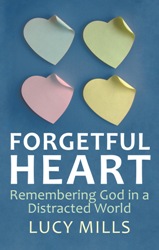Lucy Mills considers Justin Welby's recent comments on social media and our capacity for reflection ...
> Digital Communication in a Watching World
“Instant reaction has replaced reflective comment.”
These words are just a small part of the address given by the Archbishop of Canterbury at the Annual National Parliamentary Prayer Breakfast*.
The church, said Welby, exists in a world in which “cultures overlap constantly and are communicated instantly… The comments that even 20 years ago took months to reach the far corners of the earth now take seconds.”
There’s a limit to what can be summarised in 140 characters. How do we use social media in way that evokes the generosity that Welby suggests? Now that “we are face to face with everyone, everywhere” – the world is watching, in ways that have not been possible before.
> Creating space for seasoning
Brevity itself is not a bad thing. A shorter space makes us more succinct – good practice for honing our remarks. Shorter and fewer words can make things plainer.
However, it’s not just about what we say; it’s how we say it. In Colossians 4:6 we read: “Let your conversation be always full of grace, seasoned with salt, so that you may know how to answer everyone.” (NIV) Is a 140 character recipe too short to allow space for this seasoning? Often, it seems, yes.
The important thing is to understand the limitations of the medium we are using – and all media has limitations. You cannot hear a tone of voice in the written word. The meaning may seem clear to the writer, but be missed by the reader. In on-screen exchanges, emoticons can only go so far!
> Keeping things in context
A sound bite can be helpful. However, if we dislocate it from its context at best it is limited, at worst misunderstood. We need to take time to investigate before we respond. An instant reaction to an instant reaction can become like Chinese whispers. We operate on hearsay. If we’re not careful we can end up arguing against something that was never said – worse, hurting people along the way. Let’s be less reflexive and more reflective. (Oh, wait – is that a sound bite?!)
I need to ask myself – what am I retweeting? Is this quote accurate or misleading? Am I providing resources for people to track back to the source and read for themselves? Am I using the right medium for this topic? Do I even know what I’m talking about? If we aren’t well informed, our memories of an event or conversation will be distorted or false – and judgements based on such false memories cannot help but be unfair.
> The impact of the instant
It’s wonderful to be able to have a conversation unhampered by distance. But being accustomed to immediacy means we can often respond in anger, the urge to be proven right or to be funny at someone else’s expense. New media gives us ways to express our humanity – but this includes the negatives as well as the positive. After all, as Welby said in his address, “you’re sinners, and so am I.”
All media platforms can become arenas. Arenas for love, justice, generosity. Arenas for pettiness, cruelty and malice. Barbed retorts fit easily into 140 characters. It takes discipline – and the memory of who we are made to be – to halt us in our defensiveness, in our sarcasm, in our nastiness.
The world is watching. If the church cannot speak with compassion within itself, what in the world are we demonstrating?
> The calling of the Church
We live in a distracted world. I know this. I wrote a book about it. But how do we live in this distracted world? How do we remember God and what God has made us to be within it?
We are used to scapegoating various media types. But they are tools; we are those who wield them. Yes, they make it easier; that’s what tools do. They make it easier to be cruel as well as to be kind. They can be turned into weapons, which was never their original purpose. Our tools have created new opportunities, new challenges and new temptations. How do we take responsibility for our actions and stop merely blaming the tools we use? We should be more disciplined, not less. More compassionate. More forgiving. More gracious – that big, awesome style grace we have received and are called to share.
It’s a challenge to reflect and remember in such an instant, information-heavy age. We need to choose how we use the tools on offer – for good and not for harm. Swallowing our pride. Not rising to the bait or trading insult for insult. Allowing ourselves time to reflect before we respond. Because in these times of reflection we remember God-with-us. Our resulting words – if indeed we respond at all – are tinged with his grace.
For whatever we are doing or saying we always called, in Welby's words, to be “pointing in worship, deed and word to Jesus Christ.”
Lucy Mills is author of Forgetful Heart: Remembering God in a Distracted World published by DLT Books in April 2014.
*The Archbishop’s address can be found here: http://www.archbishopofcanterbury.org/articles.php/5348/archbishops-address-to-parliamentary-prayer-breakfast
Recent Telegraph report: http://www.telegraph.co.uk/finance/newsbysector/mediatechnologyandtelecoms/digital-media/10906061/Social-media-killing-off-quiet-reflection-says-Justin-Welby.html

 Follow us
Follow us Connect with us
Connect with us Pinterest
Pinterest Writers' videos
Writers' videos Instagram
Instagram




